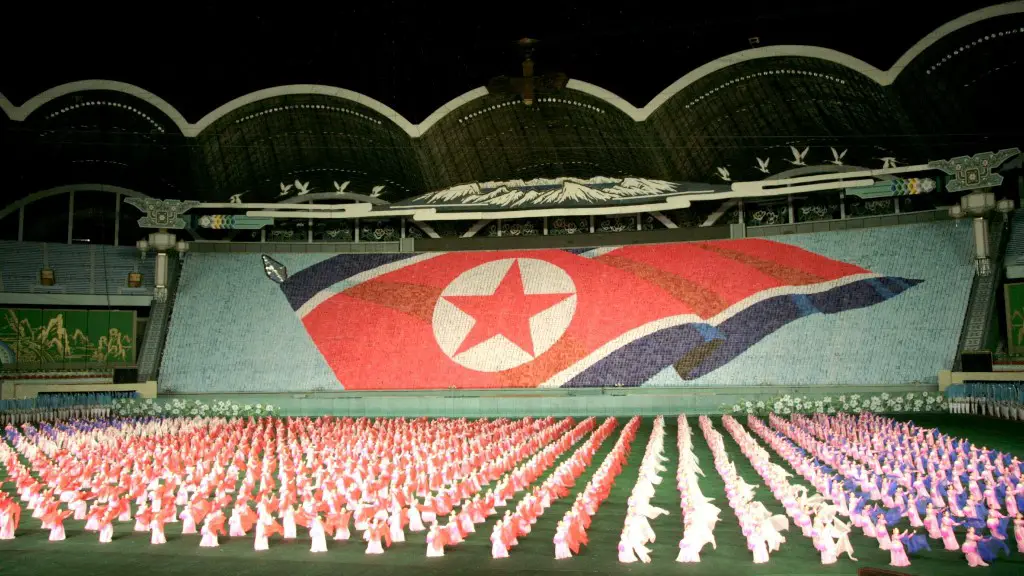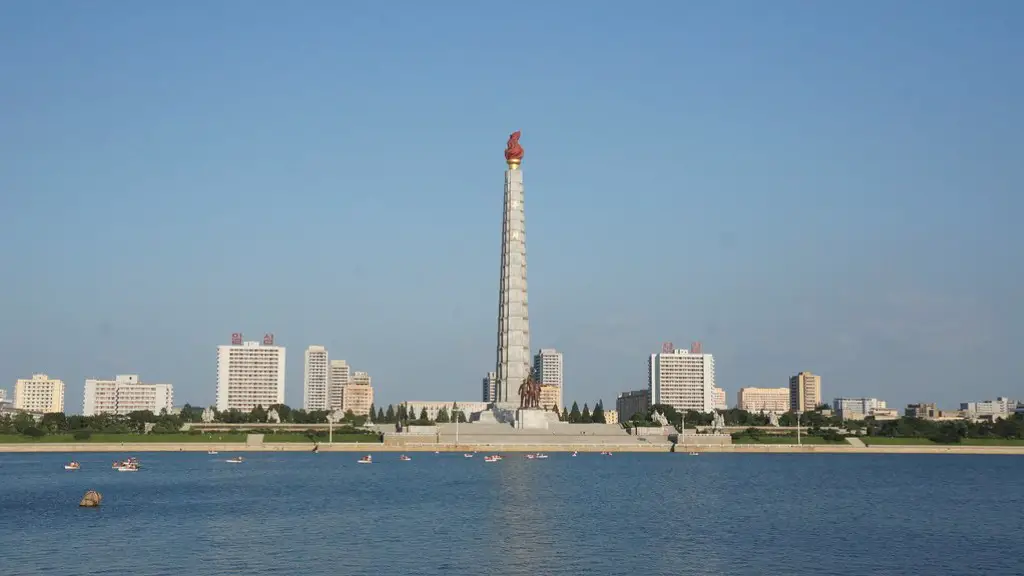Background Information
At the end of World War II in 1945, Korea was liberated from Japanese rule. The country was then divided into two sections by the 38th parallel North of the capital, Seoul. This division was created to ensure peace and security as the United States and Soviet Union sought to come to a mutual agreement on the nation’s future. Initially, the two sections of the country were not distinct and were referred to as the United Nations Temporary Commission on Korea (UNTCOK).
The initial agreement was that the territories would be supervised by the United States and the Soviet Union, but this agreement quickly dissolved when the Cold War began in 1948. On August 15, 1948, the Republic of Korea or South Korea established its own government. The Democratic People’s Republic of Korea, now known as North Korea, followed suit with its proclamation of a separate government on September 9th, 1948.
Politics
The two governments quickly became hostile as the Cold War escalated and the two sides developed different ideologies and political systems. North Korea implemented a communist government with a strong emphasis on the rule of leadership and a distinct alignment with the Soviet Union. South Korea adopted an anti-communist, capitalist stance and sought to align itself with the West.
Both North and South Korea declared themselves the only legitimate government for the entire peninsula and both claimed to be the only valid government in the UN. This pushed the international community to recognize both governments. The UN started to separate the two sides of the country and started planning for the withdrawal of foreign forces.
Military Conflict
In June of 1950, North Korea invaded South Korea and quickly seized most of the country. The United Nations responded by sending forces to defend South Korea. South Korea was able to push back the invasion with the help of the UN forces and it was clear that the two sides could no longer be combined. The war ended in 1953 and with it an armistice agreement. This meant that a peace treaty has not been signed, and technically, the two sides are still at war.
Cultural Impact
The division between North and South Korea has had a major impact on the Korean culture and people. The countries have very different ideologies and this is reflected in their society. North Korea is known for its oppressive government and heavy censorship, while South Korea is seen as a more open and modern society.
The conflict that began during the Korean War has also had an effect on the two sides. South Korea has long been viewed as an ally of the United States and has received military and economic support from the West. North Korea, on the other hand, has become increasingly isolated and reliant on its allies in the East, particularly China.
Economics
The economic difference between North and South Korea is also very large. South Korea has a thriving economy and is one of the most developed countries in Asia. North Korea is much poorer, with limited access to technology and a struggling economy. The two sides have attempted to bridge the gap through joint economic projects such as the Kaesong Industrial Complex, but the projects have been halted due to political tensions.
Relationship Today
In recent years, there have been a few attempts at reconciliation between North and South Korea. The two sides have taken tentative steps towards normalizing their relationship, such as establishing a joint economic zone and exchanging messages of peace and goodwill.
However, the two sides still remain in a state of conflict as neither country has yet to make any real progress towards unification. The threat of military conflict is still lurking in the background, and the two sides are no closer to being reunited than they were 70 years ago.
Place in World Politics
The division of North and South Korea has had a major impact on world politics. The region is seen as one of the flashpoints of the Cold War and the source of major global tensions. The current state of affairs in the region is of major concern to the international community and there is a desire to see the two sides peacefully reunite.
The United States and China have taken a leading role in mediating and attempting to bring the two sides together, as North Korea is a major ally of China and South Korea is a major ally of the United States. However, it is still unclear when, or if, North and South Korea will be able to reunite.
Education Policy
Education policy in North and South Koreath is another difference since the division of the countries. South Korea has promoted a strong emphasis on education with a focus on science and technology. This has resulted in the country having one of the highest literacy rates in the world. North Korea, on the other hand, has had a much more restrictive education policy. The government has focused on promoting loyalty to the regime and has limited access to books and resources.
Cultural Differences
The divide between North and South Korea has also contributed to cultural differences between the two sides. South Korea has adopted many Western cultural influences and has become a popular destination for tourists. North Korea has largely kept its traditional culture, but has adopted some modern influences, particularly from neighboring China.
The cultural differences between North and South Korea have also been reflected in their attitudes towards the reunification of the peninsula. North Korea has long clamored for reunification, while South Korea has been more cautious. This divide has contributed to the current state of affairs in the region and has made it difficult for any sort of meaningful progress to be made.
Role of the UN
The United Nations has taken an active role in attempting to mediate the dispute between North and South Korea. The UN has repeatedly offered to help facilitate talks between the two sides and has also provided humanitarian aid to the region.
However, the UN has been limited in its ability to bring the two sides together as both countries are reluctant to compromise. The UN has instead adopted a strategy of promoting dialogue and attempting to foster mutual understanding between the two sides.
Security Concerns
The situation between North and South Korea has also raised concerns about security in the region. North Korea has been known to behave aggressively towards its neighbors and the international community is concerned that the tensions between the two sides may escalate into open conflict.
The United States and its allies have responded by deploying a full-time military presence to the region and by increasing economic sanctions on North Korea. These measures have had some success in curbing the North Korean regime’s aggressive behavior, but the threat of open conflict remains.


